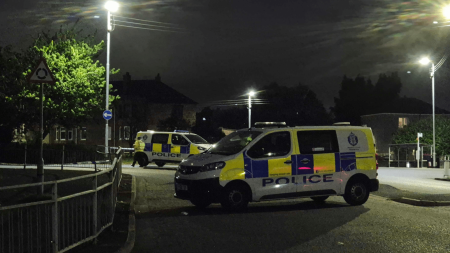The grieving families of Bebe King, Elsie Dot Stancombe, and Alice Da Silva Aguiar, the young victims of a horrific attack in Southport, are grappling with the revelation of fifteen missed opportunities to prevent the tragedy. Their solicitor, Sara Stanger, expressed shock at the sheer number of instances where Axel Rudakubana’s disturbing obsession with violence and danger went unaddressed. The families, devastated by the loss of their children, welcome the Prime Minister’s swift announcement of a public inquiry, hoping it will bring much-needed answers and prevent future tragedies. They also appealed for respect and sensitivity from the public, emphasizing their desire to remember their daughters for the vibrant lives they lived, rather than the tragic circumstances of their deaths.
Rudakubana, 18, initially pleaded not guilty but later changed his plea to guilty on all sixteen charges, including three counts of murder and ten of attempted murder. His eventual sentence of life imprisonment with a minimum term of 52 years, while offering some reassurance to the families that he is unlikely to ever be released, has been referred for review under the Unduly Lenient Sentence scheme. Rudakubana’s refusal to appear in court during sentencing and his disruptive behavior throughout the proceedings further compounded the families’ pain, highlighting his lack of remorse and respect for the victims and their loved ones.
The court heard harrowing details of the injuries inflicted upon the young girls, details so graphic that their parents requested they not be repeated by the media. This request, intended to protect the families and honor the memories of their children, has unfortunately been misconstrued by some as a media cover-up. Ms. Stanger clarified that the media has been respectful in its reporting and that the families’ plea for sensitivity should not be misinterpreted.
Just a week prior to the attack, it is believed Rudakubana plotted a similar attack on his former school, Range High School. He booked a taxi, mirroring the method he used to travel to the dance class where he committed the murders, but was stopped by his father’s intervention. This chilling revelation adds another layer of tragedy to the case, raising further questions about the missed opportunities to prevent the horrific events that unfolded.
Lancashire Police had received several reports concerning Rudakubana’s behavior prior to the attack, dating back to 2019. These reports included calls from his concerned parents, a report from Childline regarding his disturbing comments about bringing a knife to class, and a report from his school. The reports detailed incidents of escalated behavior, bringing weapons to school, and even an instance where he took a knife onto a bus. Despite these warning signs, the actions taken appear to have been insufficient to prevent the tragedy.
A journalist reflecting on the court proceedings described the experience as harrowing, expressing the difficulty of remaining composed while hearing details of the horrific injuries suffered by the young victims. The journalist highlighted the bravery and heroism of members of the public who rushed to help at the scene, contrasting their actions with Rudakubana’s cowardice and lack of remorse. The journalist’s account offers a poignant glimpse into the emotional toll of the case, emphasizing the senselessness of the killings and the enduring impact on the families and the wider community.
The 52-year minimum sentence handed down to Rudakubana, while significant, raises questions about the adequacy of sentencing for such heinous crimes, particularly in light of his age at the time of the offenses. While it is believed to be the longest sentence given to a 17-year-old offender, it falls short of a whole-life tariff, which is reserved for individuals aged 21 and over, and is sometimes considered for those aged 18-20 in exceptional circumstances. The referral of the sentence for review reflects the gravity of the crimes and the ongoing debate surrounding appropriate sentencing for young offenders. The case underscores the complex and challenging task of balancing the need for justice with considerations of age and potential for rehabilitation.











